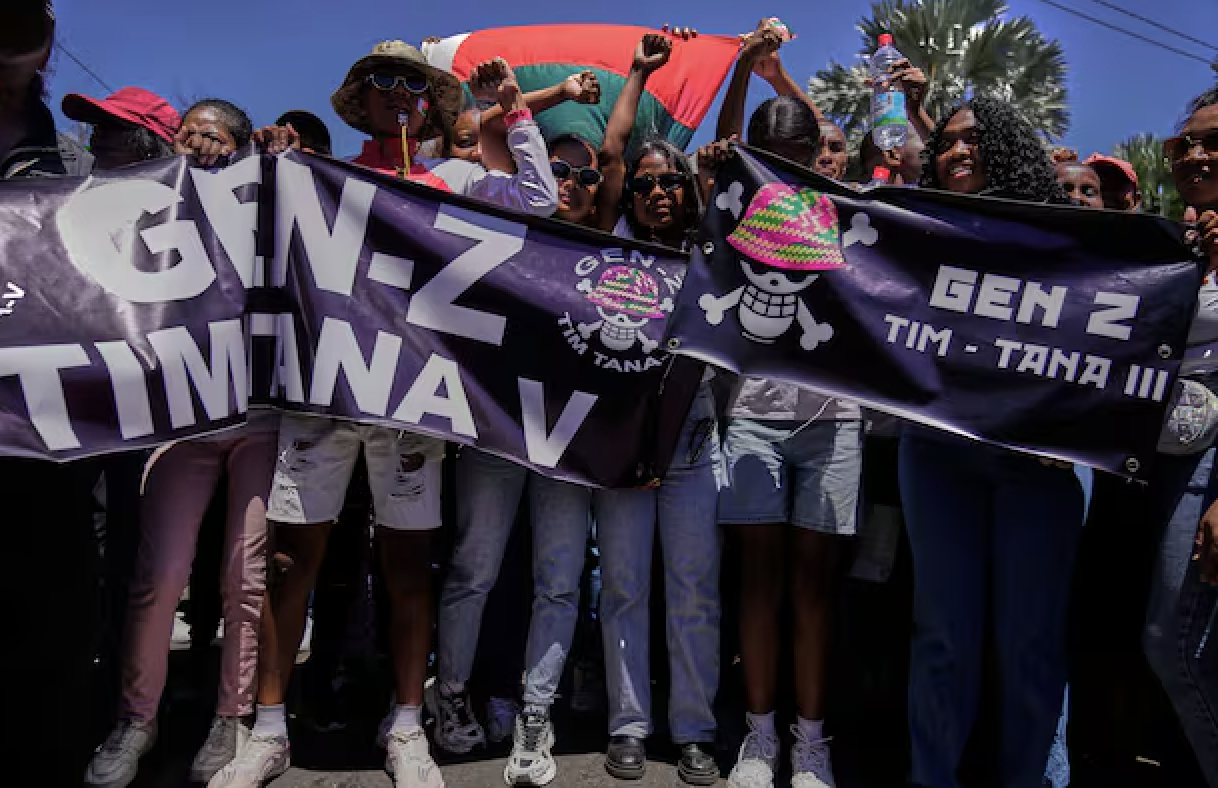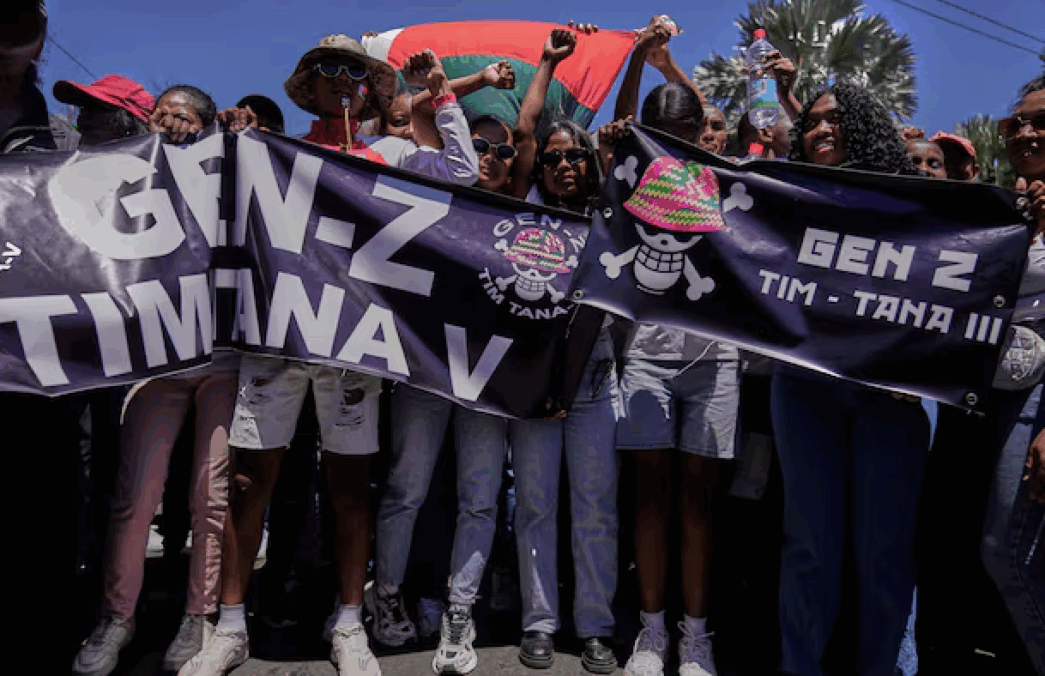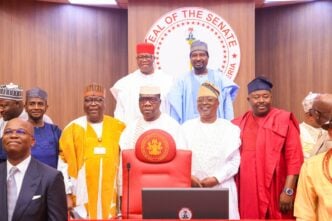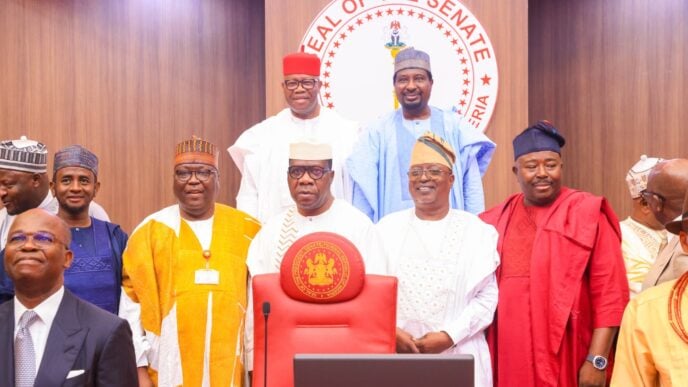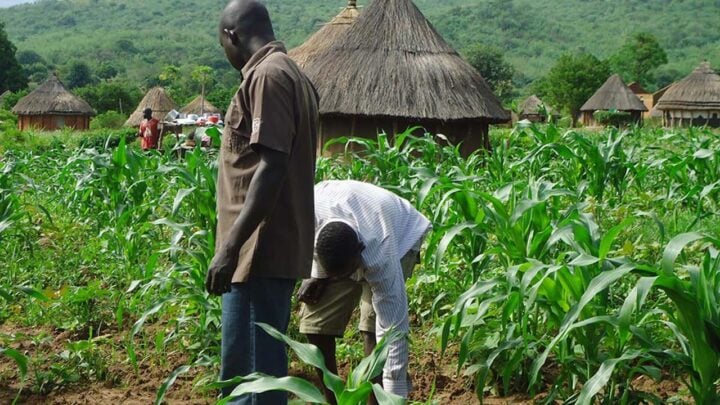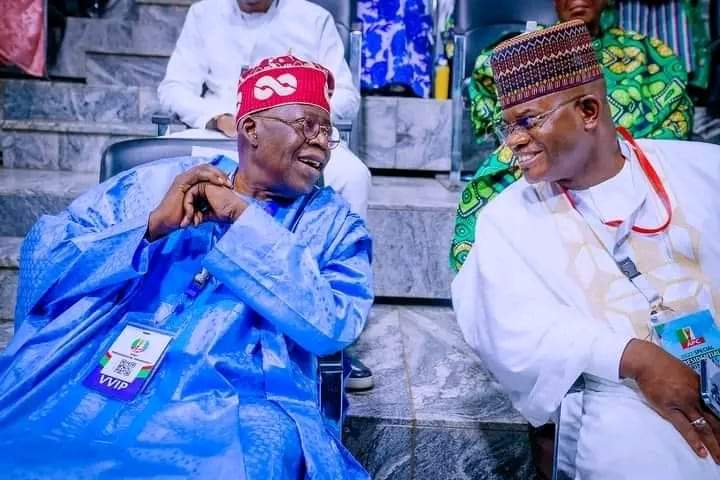Protesters call for President Andry Rajoelina to resign in Antananarivo on the 14th (local time). /Courtesy of AP=Yonhap News
In the past month, Madagascar has captured global headlines. With thousands of young protesters marching the streets and challenging power structures, it is the first time in years the Indian Ocean island has drawn attention for reasons other than its distinct wildlife and vanilla exports.
The weeks-long protests were triggered by widespread frequent power outages and water supply disruptions.
Led by Gen Z Mada, an online youth movement, protesters adopted symbols like the anime pirate flag seen in Jakarta to forge a shared identity with global youth movements, mirroring patterns seen in recent uprisings across Kenya, Indonesia, and Nepal.
In some of these countries, the protests brought tangible change — though not without the cost of lives.
Advertisement
In June 2024, hundreds of Kenyan youth breached the parliament in a brazen display of rage that set alarm bells ringing across Africa’s elite circles.
President William Ruto was forced to sack his cabinet, scrap budgets in the offices of the first and second ladies, and withdraw the heated finance bill that stirred the protests.
But 50 people had already died at the time, with the total figure later estimated to be around 115.
Advertisement
Nigeria’s #EndBadGovernance protests, also mostly youth-led, came in August 2024. The demonstrations dubbed “10 days of rage” arose primarily due to worsening economic conditions, including high inflation and the removal of fuel subsidies.
Little concrete policy changes were felt. However, the violent security clashes between protesters and security officers heightened civic engagement and drove discourse about the need for reform.
In the same year, Ghana, Uganda, and Mozambique witnessed waves of anti-government protests.
Analysts warned that the unrest could intensify in 2025 as deep-seated grievances remained unresolved.
Advertisement
When demonstrations in Madagascar gained momentum, they soon rippled northward to Morocco. It was an uncommon scene in a country long seen as a beacon of stability in the Middle East and North Africa
Madagascar’s President Andry Rajoelina has since fled the country amid heightened pressure from the uprising, leaving the court to declare his seat vacant and announcing Michael Randrianirina, commander of the elite army unit CAPSAT, as the country’s new leader.
These recent developments have brought important questions to light: are African leaders overlooking a crucial point in what appears to be an emerging continental trend? What might come next?
‘AN INTELLECTUAL AWAKENING’
Advertisement
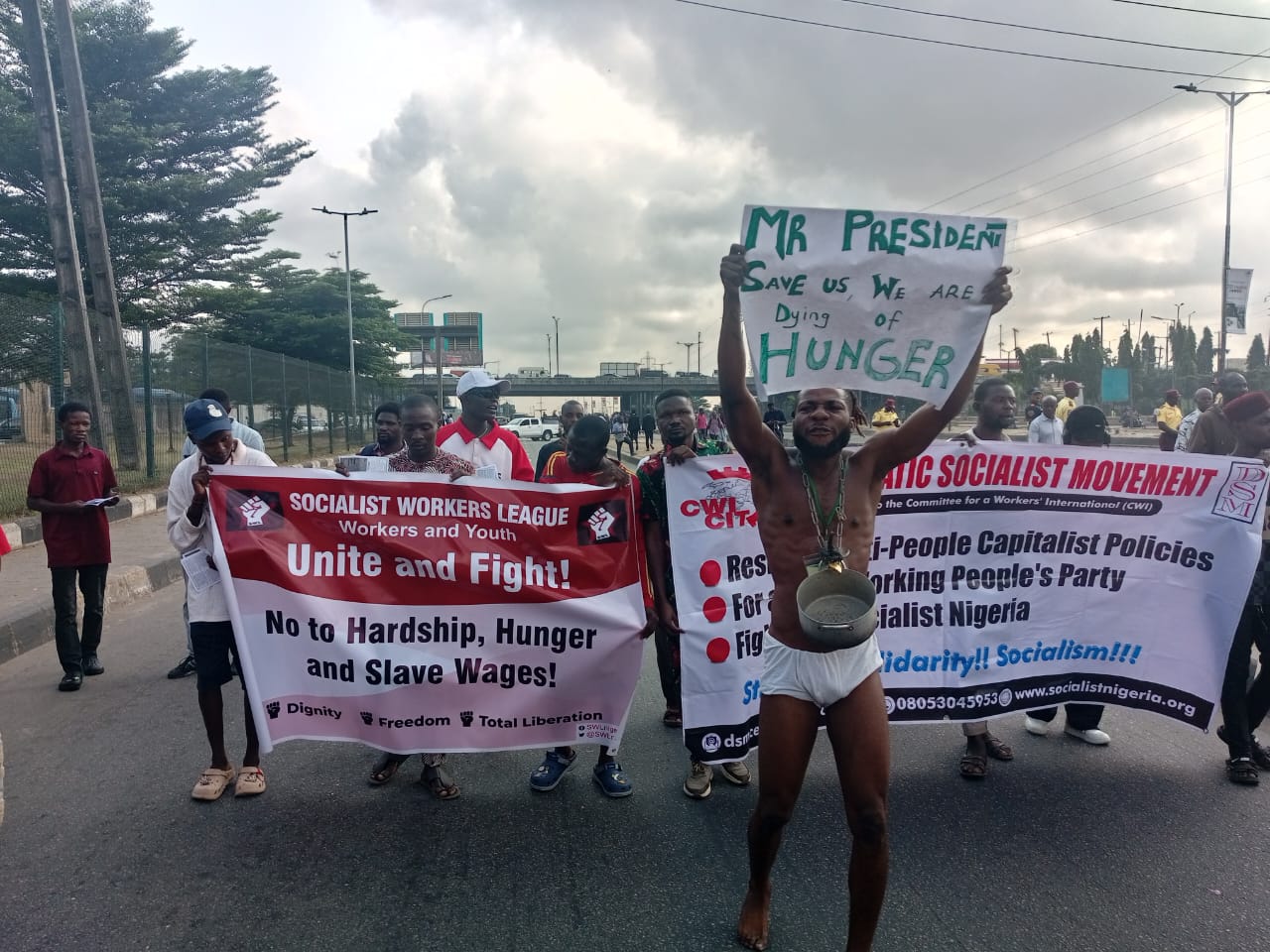
Majeed Dahiru, political analyst and columnist, attributed the increasing protests in Africa to an intellectual awakening among the youth, aided by the internet.
“The new generation of Africans has become much more enlightened. They are connected more to the global community through information and communication technology,” he told TheCable.
Advertisement
“They’ve seen how things are done in the better parts of the world, and they want their own country too to be as good as what they see.”
Dahiru said the surge in information consumption has heightened citizens’ awareness that many African leaders are falling short of providing the kind of leadership that should translate into better welfare and security for their people.
Advertisement
“So, people are becoming more and more agitated and are beginning to actually take their destiny into their own hands in attempting to cause positive change within politics across the continent.”
Bintu Sakor, a doctoral researcher at the Harvard University Center for African Studies, agreed with this notion.
Advertisement
She described it as an “intellectual awakening” in Africa, and “that is why it is more frequent now than it used to be before”.
“People really don’t want to settle for less,” she said.
Both explanations offer insight into the wildfire spread of demonstrations on the continent, but they also present a challenge to tackle.
AFRICAN LEADERS STAND DEFIANT
Achieving true change could be hard.
While a few of these movements have effected tangible change, many others fizzle out after the noise, mostly due to violent crackdowns.
Sakor, who is also a doctoral researcher at the Peace Research Institute Oslo (PRIO), told TheCable that many African leaders understand that the increasing protests have the potential to upend long-entrenched power structures but choose to ignore them.
The reason, she explained, is that the power foundations on the continent were not created to serve its people.
“The structure issues in Africa are so deep that change of transition is almost like if you have a foundation of a house and your house is rotten, no matter who you put in the house, it’s going to be rotten,” Sakor said.
“So many of the political institutions in Africa were built based on colonial structures, and they were meant not to serve the African people, but to serve Europe and (African) elites, which is zero something percent
“Are they listening? Yes. Would this lead to change? No. Because then we need to change the whole structure factor, but African leaders don’t have the courage or the skills. They’re so disconnected from their own population. They don’t know how to do that.
“They see poverty, but it’s like, ‘This is not my poverty.’ This is the sad thing about Africa. You can see a leader going past a road; the road is destroyed, and he doesn’t think that’s his thing to fix. This is the disconnect, and we need to figure out a way to make people who serve us serve us, not external people.”
The recurring unrest underscores a deeper, and perhaps, more worrisome uncertainty. What then is the true efficacy of protests if governments remain defiant and systemic change remains elusive?
Sakor maintained that because there are no guaranteed formal political pathways for citizens to air their grievances, protests are a viable option.
She, however, stressed that the demonstrations must be peaceful, citing proven research that peaceful protests lead to more sustainable democracy.
‘NIGERIANS NOT READY FOR CHANGE’
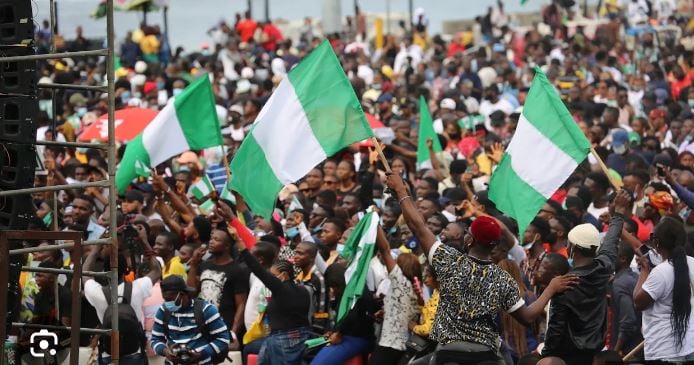
Nigeria is home to the largest adolescent population in Sub-Saharan Africa, estimated at around 60 million, according to the 2024 UN World Population Prospects report.
This has characterised the significant protests witnessed in recent years, swollen with youth activism and commanding global awareness.
Yet, when set against the pace and impact of protests elsewhere on the continent, Nigeria’s momentum appears far more restrained.
Franklyn Isong, director of the Centre for Human Rights Accountability Network, said it would be difficult for the protest-triggered changes witnessed in other African nations to be duplicated in Nigeria.
If it were possible, he argued, it would have taken effect during the 2020 #EndSARS governance protest.
The #EndSARS movement was a large-scale social movement that saw mass protests against police brutality, demanding the disbandment of the Special Anti-Robbery Squad (SARS), a notorious police unit accused of widespread abuse, including harassment, torture, and extrajudicial killings.
“Yes, you could say the government has changed the nomenclature of the team, but it is still there,” Isong said of the protest’s outcome.
“This incident happened before the 2023 poll.
“The youth did not learn, because if they had, the election that came thereafter would have been more purposeful.
“They said they were determined for a change, but they did not go out there en masse to vote. Even when they voted, their vote wasn’t defended.”
The rights advocate also cited an embrace of military rule across the continent, particularly in the Sahel and most recently Madagascar, as an outcome from prolonged youth-led protests — an experience he stressed Nigerians are not prepared for.
The situation has stirred concerns for experts like Sakor, who described democracy as a “facade that is no longer working” for Africans.
But Isong maintained confidence that growing political awareness and education among Nigerian youth would sustain their push for democratic dividends.
